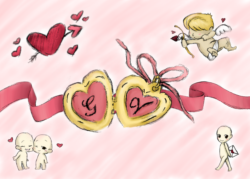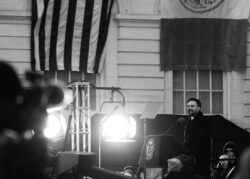Since the fateful morning of April 16, 2007, the American public has been on an emotional rollercoaster. The Virginia Tech Massacre brought on a media frenzy—the news was plastered with savage images of Seung-Hui Cho brandishing semi-automatic weapons and flooded with the sounds of life-ending gunshots. People all over the world were shocked by the carnage in Blacksburg, Virginia, and two weeks later, we still stand confused.
The morning after the Virginia Tech massacre an anonymous student formed a Facebook group entitled “Blame Society, Not Cho Seung-Hui.” I was horrified to discover that it was rapidly gaining popularity. The message seemed morally inept, and it confounded my notions of logic and ethics. Reading the wall posts, I came across arguments defending the killer: “he got tired of seeing women act like prostitutes, letting themselves be used by frat boys,” “he was bullied, ignored, probably even beaten up … there is a reason why he did this,” and my personal favorite, “did you ever think that Bush and his gun laws are responsible?”
Suffice it to say, it made me furious to think that anyone would remove the blame from a cold-blooded murderer in order to make a point about the deficiencies in American culture, turning a despicable tragedy into a platform for politics. I had only this to say in response to the “blame game” that these people were so eager to play: every man is judged based on his own merit. You can blame Bush, the National Rifle Association, even video games, but think of the concept of accountability we are creating for future generations.
I’m tremendously saddened about what happened at Virginia Tech and I feel foolish writing this drivel when such a horrific loss of life has occurred, but I can’t help but wonder why people are defending this man. I started reading blogs, and it became an addiction. I read the Washington Post, Newsweek, Facebook.com and Fox News postings, and grouped the debate into four general perspectives.
First came those who attribute this massacre to the NRA and their greed—those who would nip future massacres in the bud by making guns nonexistent. Then came the bigots who blame immigrants and America’s lax border policies. The third group consisted of educated people who accredit Cho’s behavior to his experiences. These individuals seemed the most logical, yet none of the postings offered suggestions to prevent this type of massacre in the future. Finally, there were religious posters who stressed the need to love Cho regardless of his actions. Their postings were heartfelt and sorrowful, and they wondered if he would have ever gone down this road if his community had loved and accepted him.
I started questioning my own views, and I came to a new conclusion. The truth is that I hated Cho. I hated that he felt entitled to take precious lives away from innocent people. I hated that he sent his tape to NBC. I hated the media for playing it. I hated his family for not preventing this from happening. I hated everything about Seung-Hui Cho, and I finally realized that hatred is what got us here in the first place. Hatred is what made Cho an outcast. People didn’t approve of his dress or his social tendencies and Cho, in turn, didn’t approve of himself. Their hatred of him became his hatred of himself. Hatred is how this all started.
The Beatles wrote a song in 1967 that I have known since I was a child. The song was an immediate hit, and it should be played every hour of every day for the rest of our lives. We need to wake up. Our society needs a slap in the face, something to make us realize just what we need. The Beatles resuscitated our culture back in the 1960s; I just wish they were all here to sing it again.
“All you need is love. All you need is love,” they sang. “Love is all you need.”
Cho, I’m sorry I hated you.




